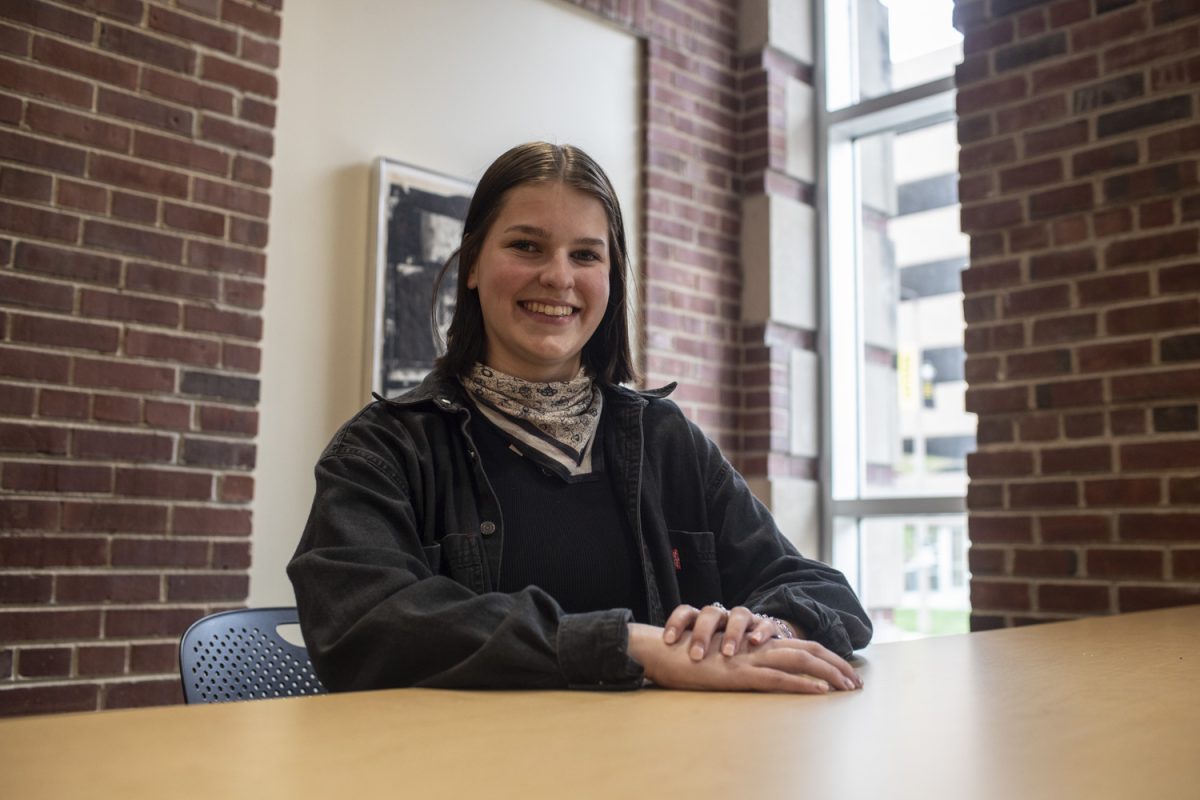Since 2004, Christine Hemp has traveled from Port Townsend, Wash., to teach poetry and nonfiction writing at the Iowa Summer Writing Festival.
"I really love teaching at the Writers’ Festival," she said. "Not only for the fabulous students but the great camaraderie with my colleagues, because I learn from them as well."
In addition to the workshops, each summer, she gives an Eleventh Hour lecture. On July 24, she will present "Yikes: A Deadline! Limitation as Liberation" at 11 a.m. in 101 Biology Building East.
Hemp’s lecture this year will focus on deadlines and the stress it can mean for writers. The inspiration for the lecture comes from her love of exploring the things writers experience anxiety over.
"I called [my first lecture] ‘Yikes: A Live Audience.’ After that, I decided that all my titles should begin with the word ‘Yikes,’ which I think is kind of fun," said the writer, poet, and consultant. "I love to address the things that writers panic about."
Even though people often feel panicked by deadlines, she said, her students thrive on it because there are parameters for the assignment.
Hemp — who has written for many magazines — said she thinks she got her training in meeting deadlines when she was an art critic for THE Magazine, Santa Fe’s magazine for the arts.
"Even though it was a restriction, I found that having that sense of urgency was a help often rather than a hindrance," she said. "And I paid attention to even the last-minute changes, which were often the best."
Hemp said that in the lecture, she will not only talk about deadlines but other types of limitations as well, such as form and structure.
"I look forward to talking about form as a liberation as well," she said. "For example, even an arbitrary poetic form can create the kind of tension that helps our imagination flourish."
She believes that in terms of time, actual physical, even athletic, practices can help with writing deadlines, she said.
"How to sometimes trick yourself into getting some little trunks done, so that the deadline isn’t one vast big thing at the end," Hemp said.
Local poet, artist, and teacher Dora Malech said she finds deadlines are helpful, and sometimes with art, the deadlines are ones she makes for herself.
"And so a lot of time with poetry, it won’t be so much the deadline in terms of time, but some kind of structure in terms of form," she said. "I set myself some kind of formal boundary that I wouldn’t call an assignment or a deadline, but that’s basically what they add up to."
Even though she finds deadlines helpful, Malech said, she can still get anxious.
It can be a kind of reverse psychology when she has a deadline in one area, she said; sometimes, it makes her creative in another area to get away from that anxiety.
"Sometimes, deadlines [are] in other areas of my work life, so a deadline for teaching, or planning a class, or running a project," Malech said. "In a strange way, when I’m anxious about that, I sometimes end up writing poems or making art, because maybe it’s kind of like a subconscious rebellion against the big deadline."
University of Iowa junior Rao Fu said she struggles with deadlines for school papers.
"Faced with the deadline so urgently, I’m still struggling with my paper [due next week in class]," she said.
She would like to go to Hemp’s lecture "to see whether there are good methods to cope with such problems."
Hemp, who said she works in art, business, and academia, said how individuals perceive deadlines is crucial to their work.
"Instead of thinking of it as a terrible gloom over our heads, we can learn to think of that it as an opportunity," she said.
The deadline itself can actually sharpen people’s sense of their pieces and hone their editing skills, she noted.
"If you had six months to write a piece instead of six days, you would probably do the same amount of work," she said.
The lecture — the fourth to last Eleventh Hour session for the summer — is free and open to the public.






